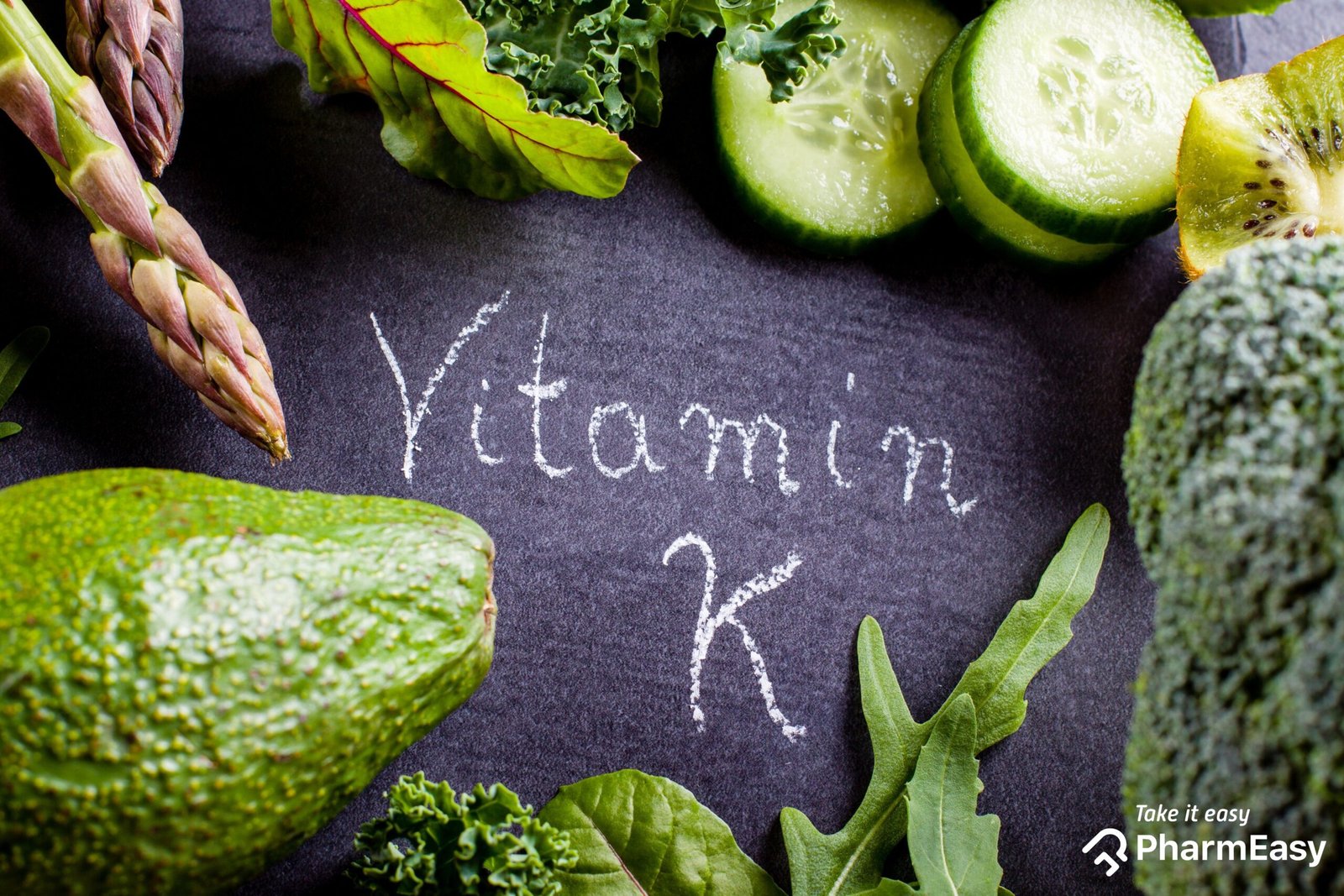Table of Contents
Vitamin K might sound like just another letter in the alphabet soup of vitamins, but it plays a crucial role in keeping our bodies healthy and functioning properly. Let’s dive into what this often overlooked nutrient does for us, where to find it, and what happens if we don’t get enough.
Why Vitamin K Matters
Strong Bones: Just like calcium and vitamin D, vitamin K is essential for bone health. It helps in the synthesis of proteins that regulate calcium, which is vital for bone mineralization. So, if you want to keep those bones sturdy, don’t forget your vitamin K!
Blood Clotting and Wound Healing: Ever wondered why you stop bleeding when you get a cut? Well, thank vitamin K. It’s crucial for the formation of blood clots, which are like natural band-aids that help stop bleeding. Without enough vitamin K, even a small cut could become a big problem.
Protecting Newborns: Babies are born with low levels of vitamin K because they haven’t developed the bacteria in their gut yet, which help produce this vitamin. That’s why newborns are given a boost of vitamin K to prevent a serious bleeding condition called Haemorrhagic Disease of the Newborn (HDN). It’s a simple step that can make a big difference in their health.
Where to Find Vitamin K
You might be surprised to learn that you can find vitamin K in some everyday foods. Here are some sources to include in your diet:
Leafy Green Vegetables: Popeye was onto something with all that spinach. Leafy greens like spinach, kale, and broccoli are rich in vitamin K. So, make sure to load up your plate with these nutritious greens.
Fruits: Avocado and kiwi fruit aren’t just delicious; they’re also packed with vitamin K. Adding them to your meals or snacks is a tasty way to get your daily dose.
Vegetable Oils: Certain vegetable oils, like soybean oil, are also good sources of vitamin K. Just be mindful of portion sizes since oils are calorie-dense.
What Happens When You Don’t Get Enough
Vitamin K deficiency is rare but can occur in certain situations, such as when fat isn’t absorbed properly or when taking certain medications like antibiotics or blood thinners. Without enough vitamin K, you might experience:
- Increased risk of fractures and osteoporosis due to weakened bones.
- Difficulty in clotting blood, leading to excessive bleeding even from minor injuries.
- Newborns may be at risk of HDN if they don’t receive the recommended vitamin K boost.
If you’re concerned about your vitamin K levels, it’s essential to consult with your doctor, especially if you’re taking medications that could interfere with its absorption or function.
In conclusion, while vitamin K may not always steal the spotlight, its role in keeping our bones strong, our blood clotting, and our newborns healthy is undeniable. By incorporating vitamin K-rich foods into our diets and staying mindful of potential deficiencies, we can ensure that our bodies have the support they need to thrive. So, let’s give a round of applause to this unsung hero of nutrition – vitamin K!
for more health tips clickhere

I simply had to appreciate you yet again. I’m not certain the things I might have done in the absence of the points shared by you regarding this subject. It previously was an absolute scary matter for me personally, however , discovering this skilled manner you handled that took me to weep over gladness. I’m thankful for your assistance and expect you know what an amazing job you’re providing training some other people by way of your website. More than likely you’ve never got to know all of us.